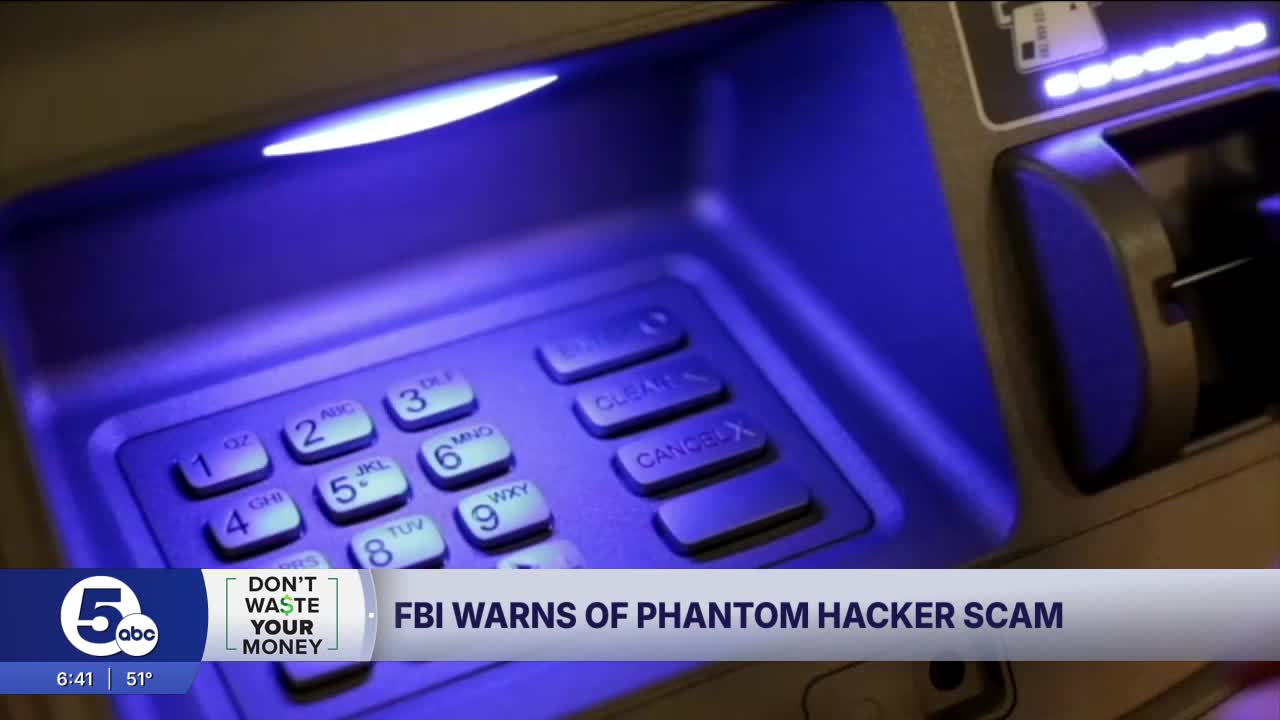A multi-phase scam that targets Americans' bank accounts has cost victims more than $1 billion since last year, according to the FBI.
The so-called "phantom hacker" scam begins with a pop-up, text message or email claiming there's something wrong with your computer. Responding to these messages can give criminals access to monitor your computer activity. The scam escalates with phone calls from people pretending to be from the victim's bank and supposed FBI agents.
Agent Charles Johnston with the Cleveland FBI says the scam is effective because the criminals prey on people's fears about their financial security.
"They sound very legitimate and when a victim believes that their financial accounts are in jeopardy, they're willing to take steps that they probably wouldn't take if they thought it through," Johnston said.
Phantom hacking differs from traditional scams because the criminals don't directly steal money from bank accounts. Instead, victims are tricked into moving their own money to another account.
"They want to gain access to your accounts or they want you to provide information and ultimately move money," Johnston said.
The FBI advises not to engage with suspicious communications.
"Don't call the phone numbers that are in pop-ups. Don't click those links in the emails," Johnston said.
Financial experts recommend talking to your bank or financial adviser before moving any money.
Anyone who encounters suspicious activity should report it to the FBI's Internet Crime Complaint Center.
This article was written by Sara Roth and Mike Brookbank for the Scripps News Group in Cleveland.




